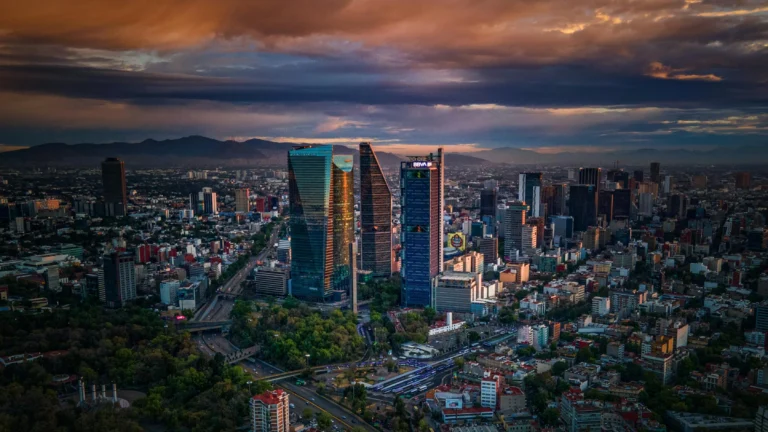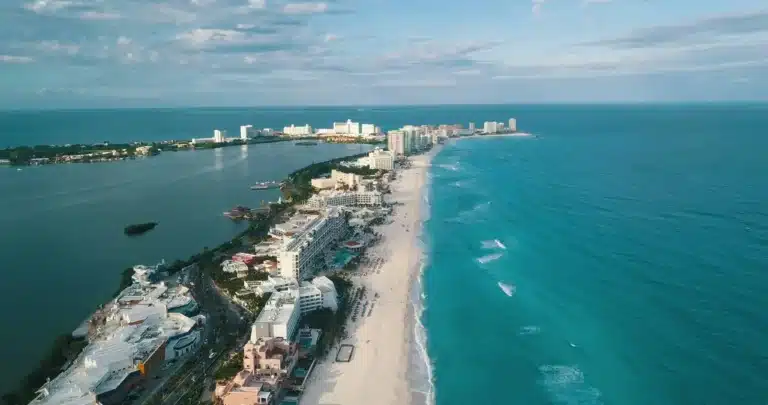Ever dreamt of working from a beach in Bali or a cozy café in Lisbon? You’re not the only one! Thanks to remote work, more people are swapping their home desks for a view of the ocean or cobblestone streets. But before you pack your bags, there’s something important you should know: working abroad on a tourist visa isn’t exactly legal. That’s where the digital nomad visa comes in.
This blog covers everything you need to know about digital nomad visas — what they are, how they work, where to get one, how to apply, and whether this lifestyle is right for you.
What Is a Digital Nomad Visa?

A digital nomad visa is basically a golden ticket for remote workers who want to live in another country without breaking any rules. It allows you to stay for longer than a tourist visa and actually work remotely while you’re there.
If you’re a freelancer, remote employee, online business owner, or someone earning money from clients or companies abroad, this visa was made for you.
Most digital nomad visas last from six months to two years. Some can be renewed, and a few even open doors to long-term residency.
Digital Nomad Visa vs. Tourist Visa
Thinking of just using a tourist visa and working anyway? Here’s why that might not be a great idea:
Legality of Remote Work
Tourist visas usually don’t allow any kind of work—even if your job is online and your clients are in another country. Working while on a tourist visa could land you in trouble.
Digital nomad visas, on the other hand, make it totally legal to work remotely. No sneaking around or fearing immigration checks.
Example: Imagine you’re a graphic designer from the U.S. working remotely from Thailand on a tourist visa. You grab your laptop, settle into a coworking space, and start designing for a U.S.-based client. All seems fine — until immigration officers do a random check at your coworking space. They ask about your work, and since you’re on a tourist visa, you can’t prove you’re there legally for remote work. The result? You could be fined, deported, or blacklisted from re-entry. Which would suck.
Duration
Tourist visas are short and sweet — usually 30 to 90 days. That’s not ideal if you actually want to live somewhere new.
Digital nomad visas last much longer, often 6 months to 2 years. That gives you enough time to settle in, make local friends, and really explore the place.
Limitations
Tourist visas can be hard to extend. Overstay, and you might face fines or be banned from coming back.
Digital nomad visas are more flexible, though they come with a few strings attached—like proof of income and sometimes health insurance.
They also may limit access to certain public services, and in some cases, holders are required to maintain international health insurance.
Countries Offering Digital Nomad Visas
More and more countries are rolling out the welcome mat for digital nomads. Here are some top picks:
| Country | Digital nomad visa length | Income requirement | Perks |
|---|---|---|---|
| Portugal | 1 year (renewable) | Minimum of $3,755/month | Path to residency & EU access |
| Spain | 1 year (renewable) | Minimum of $2,980/month | Great weather & lifestyle |
| Estonia | Up to 1 year | Minimum of $4,856/month | Tech-forward, easy online services |
| Costa Rica | 1 year (renewable) | Minimum of $3,00/month | Tax exemptions for nomads |
| Barbados | 1 years | Minimum of $4,200/month | Tropical paradise lifestyle |
| Indonesia (Bali) | Up to 5 years | Minimum of $2,000/month | Long-term tropical base |
| Germany | Varied, depending on the region | Varied, depending on the region | Business-friendly, central Europe |
| Mexico | Up to 4 years | Minimum of $3,700/month | Low cost of living, flexible rules |
- Portugal: Their D8 visa lets you stay for a year (and renew for up to 5 years). You’ll need proof of income and savings.
- Spain: A new digital nomad visa is here! It lasts 1 year to start and can be extended. Perfect for freelancers and remote workers.
- Estonia: The first country to launch a digital nomad visa. It lasts up to a year and is great if you want a modern, tech-savvy base.
- Costa Rica: Sunshine, beaches, and a one-year visa with tax perks. Show a steady income, and you’re in.
- Barbados: Their “Welcome Stamp” lets you work from paradise for a full year.
- Indonesia (Bali): Currently planning a 5-year nomad visa for those working with clients outside the country. Great for long-term beach vibes.
- Germany: Offers a freelancer visa (Freiberufler) and a self-employment visa (Selbständiger) that can work for digital nomads. You’ll need local clients or business registration.
- Mexico: Their Temporary Resident Visa lasts up to four years and has pretty relaxed rules.
You can also check out our list of the best digital nomad cities to help you decide where to do.
How to Apply for a Digital Nomad Visa

Every country is a little different, but here’s the general process:
Step 1: Pick Your Country
Think about your lifestyle: beach or city? Fast internet? Cost of living? Safety? Time zones? Choose what works for you.
Step 2: Get Your Documents Ready
You’ll usually need:
- A valid passport
- Proof of remote income (bank statements, client contracts, etc.)
- Health insurance
- A clean background check
- Application forms and photos
Step 3: Apply Online or In Person
Some countries let you apply online, others require you to visit an embassy or consulate.
Step 4: Wait for Approval
This can take anywhere from a few days to a few weeks. Be patient and have a backup plan in case of delays.
Helpful Tips
- Double-check income requirements before you apply
- Make sure your health insurance meets the visa rules (you can check out our guide to digital nomad travel insurance)
- Consider hiring a visa consultant if it all feels a bit overwhelming
Pros and Cons of Digital Nomad Visas
While it seems great, there are some things to consider with the digital nomad visa.
Pros
- Legal Peace of Mind: Work freely without worrying about breaking immigration rules
- Longer Stays: Say goodbye to 90-day limits and visa runs
- Local Living: Get to know a place beyond the tourist hotspots
- Residency Perks: Some visas can even lead to long-term residency
Cons
- Paperwork Overload: Applications can be time-consuming
- Income Rules: You may need to earn a certain amount each month
- Taxes: Depending on the country, you might owe local taxes
- Healthcare: You’ll likely need private insurance (and proof of it)
About the Air Doctor App
With the Air Doctor app in your pocket, you can access medical care and receive expert medical guidance while you’re in Paris (and anywhere else you travel).
Air Doctor offers a wide range of benefits, including:
- A global network of over 20,000 multi-lingual doctors and specialists
- Choice of clinic, at-home (hotel), and video consultations
- Video consults in 90+ countries and up 20+ languages
- 24/7 multi-lingual support
- Transparent pricing and reviews
- Most common medical specialties, including GPs, dentists, and cardiologists
If you’re looking for reliable, accessible, and global medical assistance, Air Doctor is the perfect choice for you. Download the app before your next trip to ensure peace of mind and access to quality healthcare, wherever your travels take you.
FAQs
Yes. Usually, digital nomads pay taxes based on the country they’re living in.
Some digital nomad visas absolutely allow families to come with, but it’s important to make sure, because the requirements to apply may change.
Absolutely! It’s not 100% guaranteed, but it definitely doesn’t hurt.











